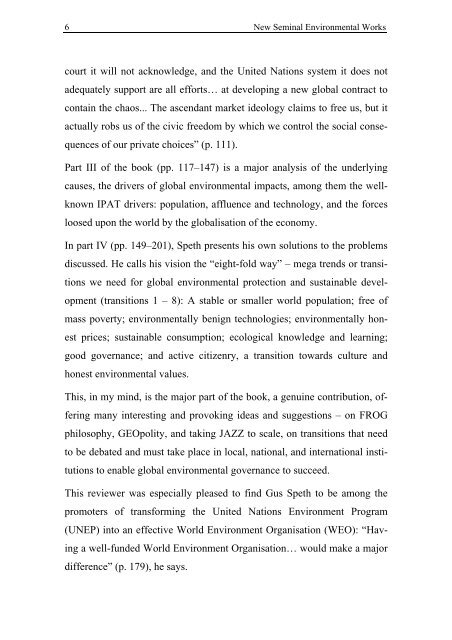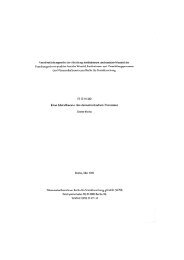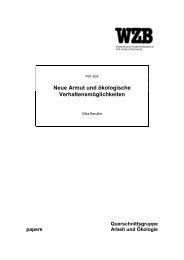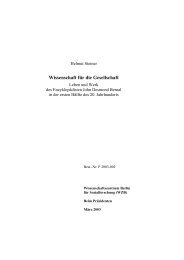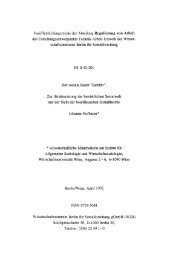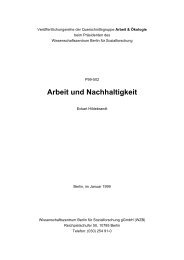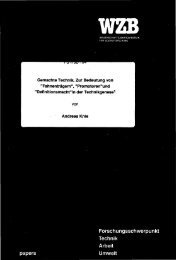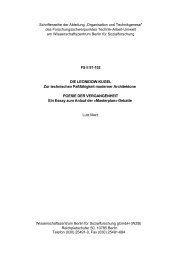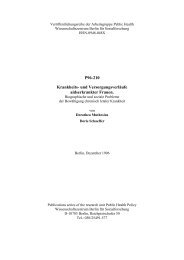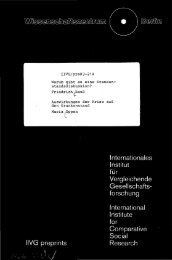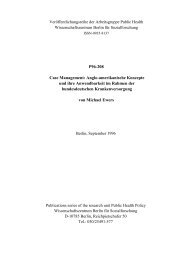New seminal environmental works. Nine review articles. - WZB
New seminal environmental works. Nine review articles. - WZB
New seminal environmental works. Nine review articles. - WZB
You also want an ePaper? Increase the reach of your titles
YUMPU automatically turns print PDFs into web optimized ePapers that Google loves.
6 <strong>New</strong> Seminal Environmental Works<br />
court it will not acknowledge, and the United Nations system it does not<br />
adequately support are all efforts… at developing a new global contract to<br />
contain the chaos... The ascendant market ideology claims to free us, but it<br />
actually robs us of the civic freedom by which we control the social conse-<br />
quences of our private choices” (p. 111).<br />
Part III of the book (pp. 117–147) is a major analysis of the underlying<br />
causes, the drivers of global <strong>environmental</strong> impacts, among them the well-<br />
known IPAT drivers: population, affluence and technology, and the forces<br />
loosed upon the world by the globalisation of the economy.<br />
In part IV (pp. 149–201), Speth presents his own solutions to the problems<br />
discussed. He calls his vision the “eight-fold way” – mega trends or transi-<br />
tions we need for global <strong>environmental</strong> protection and sustainable devel-<br />
opment (transitions 1 – 8): A stable or smaller world population; free of<br />
mass poverty; <strong>environmental</strong>ly benign technologies; <strong>environmental</strong>ly hon-<br />
est prices; sustainable consumption; ecological knowledge and learning;<br />
good governance; and active citizenry, a transition towards culture and<br />
honest <strong>environmental</strong> values.<br />
This, in my mind, is the major part of the book, a genuine contribution, of-<br />
fering many interesting and provoking ideas and suggestions – on FROG<br />
philosophy, GEOpolity, and taking JAZZ to scale, on transitions that need<br />
to be debated and must take place in local, national, and international insti-<br />
tutions to enable global <strong>environmental</strong> governance to succeed.<br />
This <strong>review</strong>er was especially pleased to find Gus Speth to be among the<br />
promoters of transforming the United Nations Environment Program<br />
(UNEP) into an effective World Environment Organisation (WEO): “Hav-<br />
ing a well-funded World Environment Organisation… would make a major<br />
difference” (p. 179), he says.


